Who are We?
The transition to a more circular built environment in Europe is gathering pace. This is partly thanks to decarbonisation objectives set up by the EU through their Fit For 55 legislative package to bring down CO2 emissions by at least 55% by 2030. This requires a new systemic approach to development from better use of existing buildings to improving local supply chains so that we can reduce the carbon footprint, not only in the use-phase homes, but also those linked to construction activities.
However, circularity is still far from being mainstreamed in the construction sector due to several reasons such as uncertainty about the availability of materials and suppliers, lack of knowledge of cost-effective technical solutions and processes, and the need for more lighthouse projects. Fragmentation of the renovation value chain is another issue to tackle in order to improve the quality of the residential building stock.
As it is recalled in the EPBD recast, the EU is widely encouraging the emergence of integrated and streamlined approaches to home renovation. Setting up One-Stop-Shops (OSS) open to all the actors in the renovation value chain is seen as a possible way to facilitate the match between the demand and supply, to deliver tailored and integrated renovation services to homeowners, and even to accelerate the shift from single-building to district scale renovations.
On 21 May, Housing Europe, the European Federation of Public, Cooperative and Social Housing representing the sector in Brussels, and HABITECH, held a public event at Le Gallerie Museum in Trento (Italy) to explore the potential of one-stop shops for integrated renovation in the region. The event was part of the EU-funded project ARV, which aims to accelerate the renovation rate in Europe through the roll-out of Climate Positive Circular Communities. The Italian demonstration case is a large area in the Piedicastello district, and a residential building in the uphill Povo district, piloting pre-fabricated timber panels for renovation amongst other actions.
The occasion brought together key players in the local renovation value chain, including councilors from the City of Trento, APRIE (Water Resources and Energy Agency of the Autonomous Province of Trento), HABITECH, ANCE Trento (the local branch of the national association of construction companies), Fanti Legnami (a local supplier of wooden products and structures) and CoopCasa Trento, a service provider for cooperatives in Trento.
Sara Verones from APRIE Agency highlighted the urgency to decarbonise the residential buildings in the Province of Trento through renovation. A recent mapping from the Agency showed that 45% of the residential building stock in the Province is energy inefficient (E-G energy class), which has a crucial impact on the overall consumption. As OSS gradually become the norm, partnerships between the public and the private sector (i.e., enterprises) requires to be taken into consideration.
In the Povo district, an innovative cluster made of HABITECH, Università di Trento, EURAC Research and suppliers Fanti Legnami, Armalam, ZGAArchitectura and Sovecar-Climacenter, have successfully piloted the “Renew Wall” system, a timber-based prefab-kit, for the retrofitting of a 3-storey residential building. The added value of the “Renew Wall” compared to more traditional systems like ETICs is that no scaffolding is required, allowing residents to stay during renovation works. The European funding from the ARV project is now being used to monitor the thermal benefits of this innovative solution, as well as the impacts on the indoor environmental quality.
Other benefits of the “Renew Wall” include a shorter renovation time, a substantial energy performance improvement and attention to architectural and aesthetic quality.
The renovation works carried out in the Povo district significantly remarks the benefits of a “value chain approach” when rolling out innovative construction processes and technologies. For this purpose, HABITECH is currently piloting a One Stop Shop in the framework of ARV, aiming to match local demand and supply of renovations and to raise awareness on sustainable technologies for better retrofitting, including prefabrication. Ongoing OSS activities in Trento involve the arrangement of matchmaking and informative sessions between local enterprises and homeowners, the aggregation of suppliers, as well as the cooperation with local stakeholders and policy makers to set the ground for further development.
A successful example of a mature One-Stop-Shop approach is the OPENGELA project that also used European funding to set-up two neighbourhood offices in the Basque Country to give advice and support to the residents of the Otxarkoaga (Bilbao) and the Txonta (Eibar) districts about green energy renovation. ‘OPENGELA’ provided an interesting financing model for the region. Born out of the premise that the income and repayment capacity levels of a great share of the population was too low to access ordinary bank loans and could only access subsidies or high-interest rate credits, the ‘MAS OPENGELA’ mechanism (a mix of public and private funds) offers loans refundable in 15 years to help those low-income households cover the full investment needed for the renovation of their homes.
A roundtable was organised with representatives from the social and cooperative housing sector – Marco Corradi (President of ACER Reggio Emilia) and Andrea Rinaldi (Director of CoopCasa Trento); and the building industry – Andrea Basso (President of ANCE Trento) and Marco Giglioli (President of Habitech).
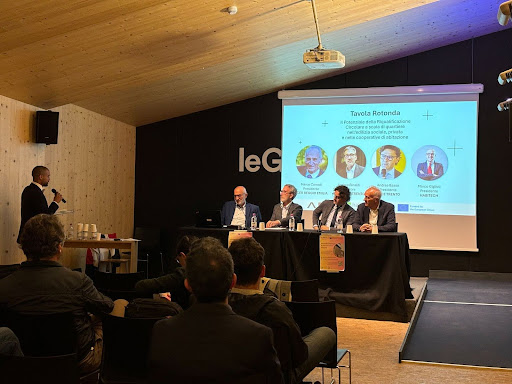
The advantages of using a one-stop shop in Italy came across multiple times, but with that, there were also the potential barriers to the development and application of one-stop-shop models, and the use of prefabricated renovation kits.Today, the one-stop shop model is not yet widely known or utilised in Italy. However, according to Marco Giglioli, President of Habitech, the experience with the Superbonus 110% fiscal incentive in the Province of Trento has pushed efforts in this direction. Andrea Basso, President of ANCE Trento, emphasised that “funding schemes and policies to finance renovations are crucial in this process.”
Andrea Rinaldi noted that prefabricated toolkits, such as wooden panels, may be appealing to young cooperative owners because they combine sustainability with ethical aspects in renovations. However, the panelists also pointed out that further testing, price reduction, and increased promotion are needed to promote advanced technologies. Marco Corradi stressed that renovated districts require not only cutting-edge technologies and digital solutions but also the development of proximity services, particularly for the most vulnerable people.
An exhibition space welcomed suppliers from across the construction value chain in the Province of Trento and close Italian regions to present the circular and sustainable renovation solutions that can help building owners and social and cooperative housing providers fast-track the energy transition. Namely: Armalam, Fanti Legnami, XLAM Dolomiti, Climacenter, HELTY – ALPAC HOLDING, ZANETTI SRL, UPSENS, SOVECAR.
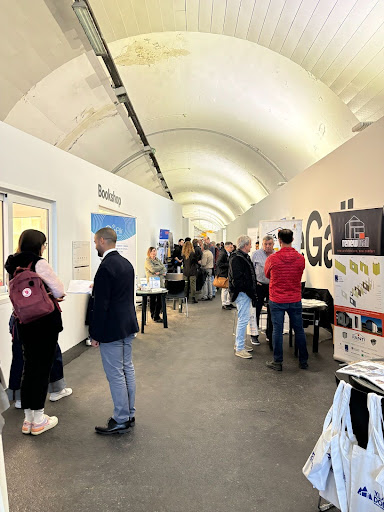
Find the Article on BUILDUP.
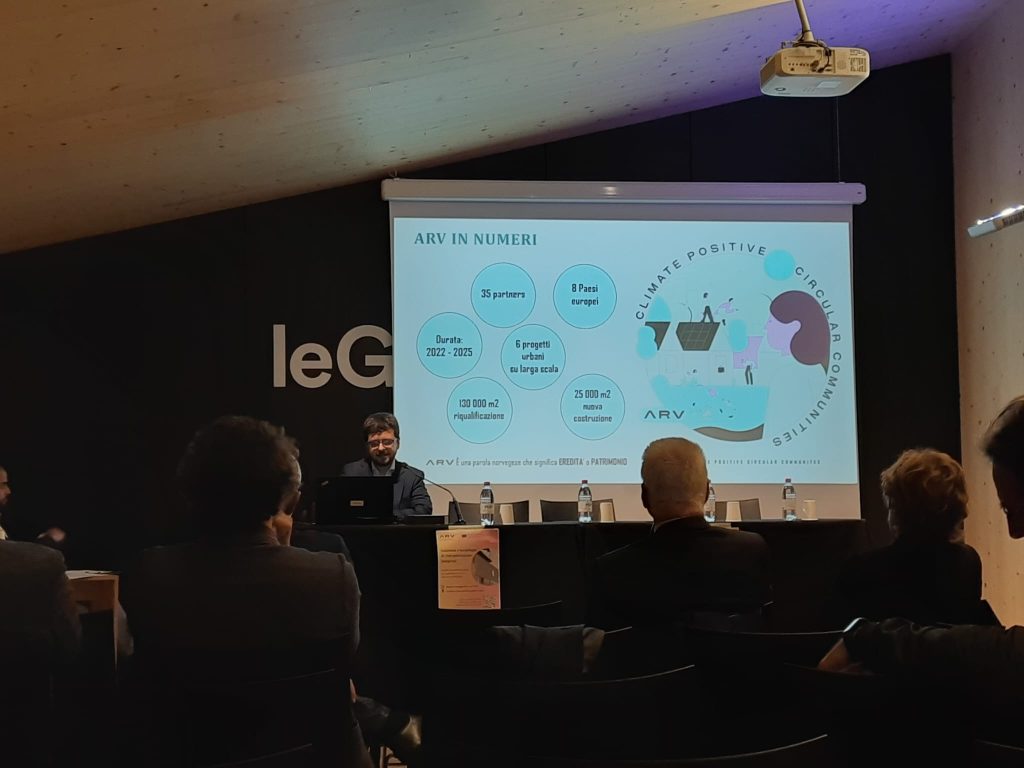
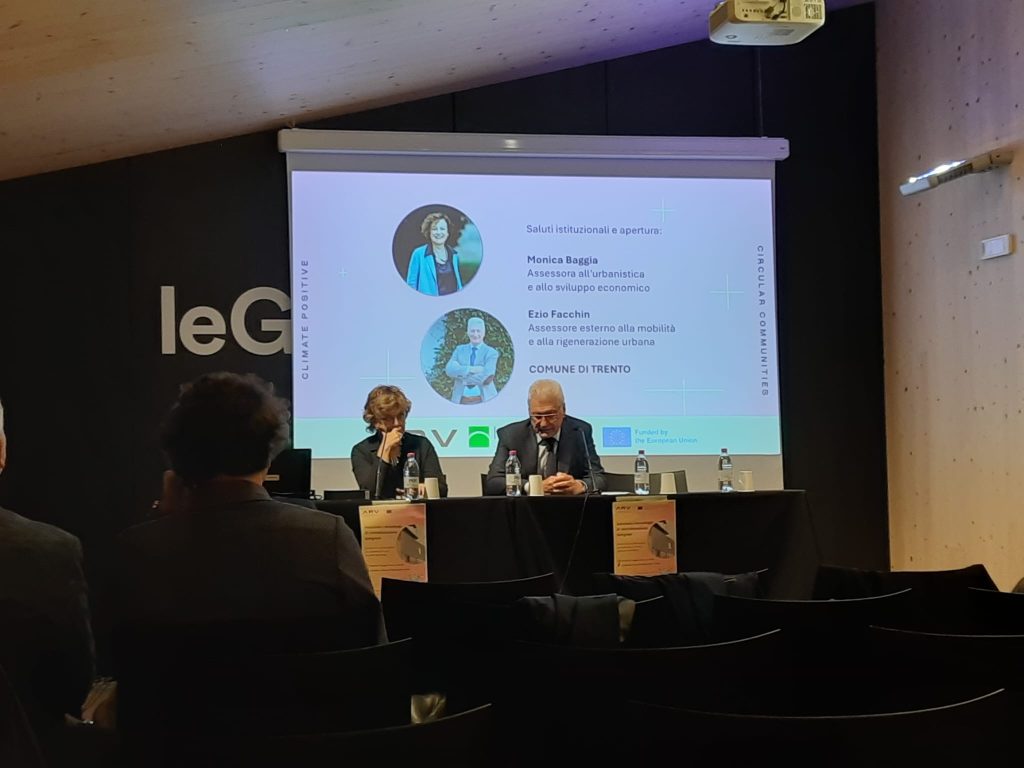
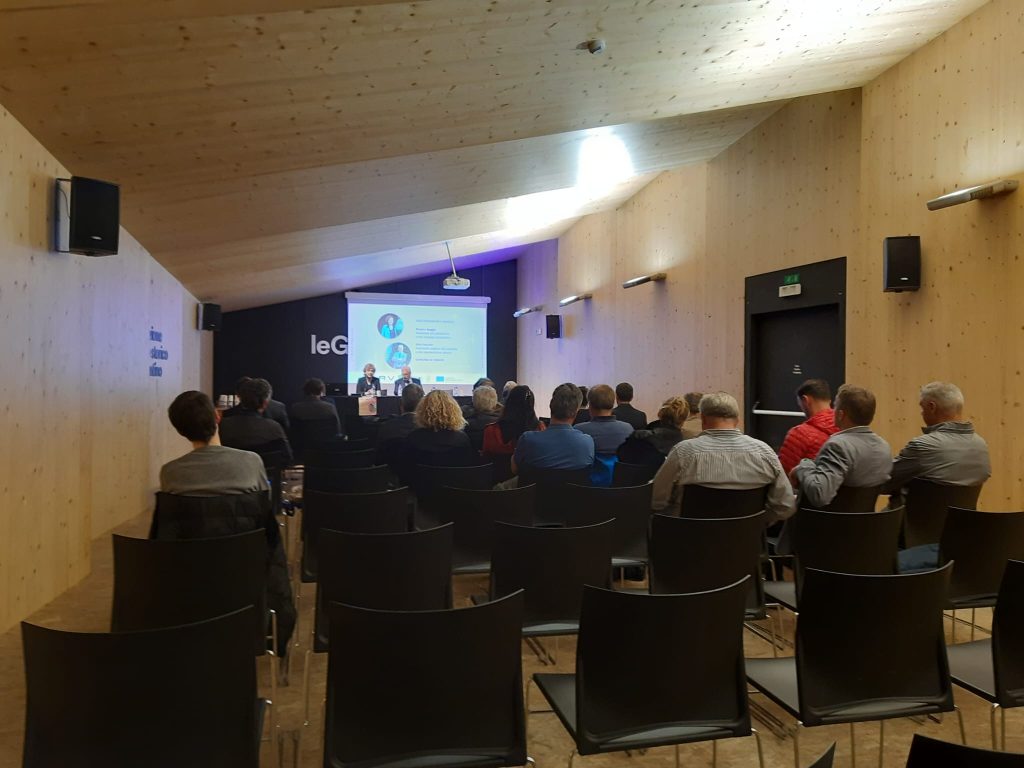

Subscribe to our Newsletter
Want to know more about the new generation of climate positive circular communities (CPCC)? Sign up to our bi-annual newsletter (no spam guaranteed)!